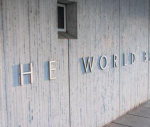You are here
Jordanians mostly unhappy with justice system — report
By Rana Husseini - Oct 23,2017 - Last updated at Oct 25,2017
AMMAN — A local study on Jordanians’ satisfaction with the justice system indicated that over 50 per cent of those surveyed had stalled cases at Jordanian courts.
Meanwhile, 33 per cent of the surveyed individuals said they suffered “from dangers and difficulties, at least once, when they tried to solve a problem within the justice system”.
The findings were announced during the launch of a report titled “Justice Needs and Satisfaction in Jordan: Legal problems in daily life” on Monday.
The study, which surveyed 6,000 people across Jordan including 600 Syrian refugees, was conducted by The Hague Institute for Innovation of Law (HiiL) in cooperation with The Arab Renaissance Organisation for Democracy and Development (ARDD) and supported by the foreign ministry of The Netherlands.
The study mapped out the bottom-up justice needs in Jordan and provided evidence about people’s experiences with the costs of accessing justice, the quality of procedures and its accompanying results.
“A large percentage of surveyed people said that legal proceedings in Jordan take too long and that they fail to provide solutions to their problems, with many saying that they have had cases that lasted four years in courts,” CEO of HiiL Sam Muller told members of the gathering.
Muller, who highlighted some of the findings of the report, stated that “there is a gap between the demand and delivery of legal services and advice”.
“Residents address legal problems with formal and informal solutions, often involving family members, neighbours, and direct contact with the other party,” Muller noted.
He added that the findings of the report also indicated that people want a fairer and more inclusive justice process.
“What is important to me is that we now have the voices of 6,000 users of the justice system and the key challenge is to see to which extent the leaders of the justice system will be able to commit to the demands formulated,” Muller said.
The CEO said that he is hopeful that coalitions will be formed to improve justice services in Jordan and that “new innovative ways will be developed to open the door for people to try to resolve their legal problems peacefully without resorting to courts”.
ARDD conducted over 30 in-depth qualitative interviews with a diverse selection of Jordanian residents from a range of backgrounds, contexts, and situations, said ARDD CEO Samar Muhareb.
“ARDD explored residents’ experiences with financial, criminal, neighbour and family status legal cases, among other focus areas, getting insight into the legal system of Jordan, as experienced by the people,” Muhareb told the gathering.
Regarding the Syrian refugees who live in urban areas, Muhareb said the study showed that they encountered legal problems concerning “their most basic human needs such as secure shelters, decent income, official identification documents and good education for their children”.
“The majority of the refugees who face legal issues, act on resolving them with their own resources, although mostly limited,” Muharen explained.
Having structured resources for resolving legal problems in a fair manner is “rare for refugees”, she added.
“This leads to a very high proportion of legal problems remaining unresolved, which increases the vulnerability of the Syrian refugees,” Muhareb added.
Earlier in the day, the deputy president of the Cassation Court, Judge Naji Zu’bi, said that the justice system in Jordan and elsewhere “is not very comforting when it comes to responding to people’s demands”.
“I feel that the justice system is going through a crisis and I believe we need to be constantly revising our legislation to get rid of what is not appropriate,” Zu’bi said.
Zu’bi added that people need to be continuously educated about their legal rights and that they should understand that “religion does not only revolve around praying and fasting”.
Senator Sawsan Majali agreed with Judge Zu’bi, saying the change should be holistic and that “we should educate people to be aware of their legal rights because many remain ignorant, trying to solve their problems without consulting appropriate legal solutions”.
Ambassador of the Kingdom of the Netherlands Barbara Joziasse stressed the importance of the study as it looked at the “everyday need of people in Jordan”.
She added that one of the important findings of the study was that “information sharing and awareness is actually sometimes more efficient than going to court. It is easier to work on mediation instead of going through very long and expensive court procedures,” the Dutch ambassador added.
Related Articles
AMMAN — A local study on the perceptions on the justice sector in Jordan indicated that people are more content with religious rather than c
AMMAN — A report published recently by the Arab Renaissance for Democracy and Development (ARDD) revealed that 43.8 per cent of Syrian refug
AMMAN — Jordan is in dire need of raising awareness on the legal rights and duties of its citizens while increasing their access to legal ai

















